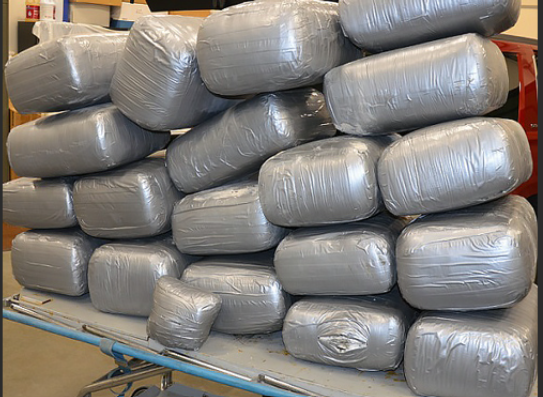ACCRA, GHANA – Despite efforts to combat the flow of illicit drugs across West Africa, the region remains a major transit point for cocaine from South America to Europe, and a growing market for locally produced and imported narcotics, according to a recent report and ongoing discussions among regional law enforcement officials. Experts are calling for intensified international cooperation, strengthened national legislation, and a more holistic approach to address the complex web of factors fueling drug trafficking.
For years, West Africa’s porous borders, weak governance, and limited resources have made it a prime target for drug cartels seeking to move their product undetected. Cocaine, arriving primarily by sea or air, is then broken down and smuggled onwards to Europe, often through established criminal networks. More recently, the region has also seen an increase in the production and consumption of methamphetamine and other synthetic drugs, adding another layer of complexity to the challenge.
“While some progress has been made in disrupting trafficking routes and seizing illicit shipments, the scale of the problem is immense and requires sustained, coordinated action,” stated Dr. Kwame Asante of the West African Network on Drug Policy. “We need to move beyond reactive measures and address the underlying issues of poverty, corruption, and lack of opportunity that make individuals vulnerable to recruitment by criminal organizations.”
The report highlights several key challenges that continue to hinder the fight against drug trafficking:
- Corruption within law enforcement and government:┬ĀThis endemic problem allows traffickers to operate with impunity and undermines efforts to bring them to justice.
- Weak border control:┬ĀVast and unmonitored borders facilitate the movement of drugs and other contraband across national boundaries.
- Lack of resources:┬ĀUnder-equipped and under-trained law enforcement agencies struggle to effectively combat sophisticated criminal networks.
- Limited cooperation between countries:┬ĀUneven national laws and a lack of trust between neighboring states impede cross-border investigations and intelligence sharing.
The impact of drug trafficking extends beyond law enforcement. The influx of illicit drugs fuels crime, violence, and corruption, undermining development and jeopardizing public health. Drug abuse is on the rise in many West African countries, straining healthcare systems and contributing to social problems.
“We need a comprehensive approach that addresses both the supply and demand side of the drug trade,” argued Reverend Father Peter Konteh, a Freetown, Sierra Leone-based Catholic priest working on drug prevention and community development. “This includes investing in drug treatment and rehabilitation programs, providing economic opportunities for vulnerable communities, and raising awareness about the dangers of drug use.”
The international community is urged to provide increased financial and technical assistance to support West African governments in their efforts to combat drug trafficking. This includes strengthening law enforcement capacity, improving border security, and promoting good governance.
Ultimately, tackling drug trafficking requires a multi-faceted and sustained commitment from all stakeholders ŌĆō governments, law enforcement agencies, civil society organizations, and the international community. Only through concerted action can West Africa hope to stem the tide of drugs and build a more secure and prosperous future for its citizens.









